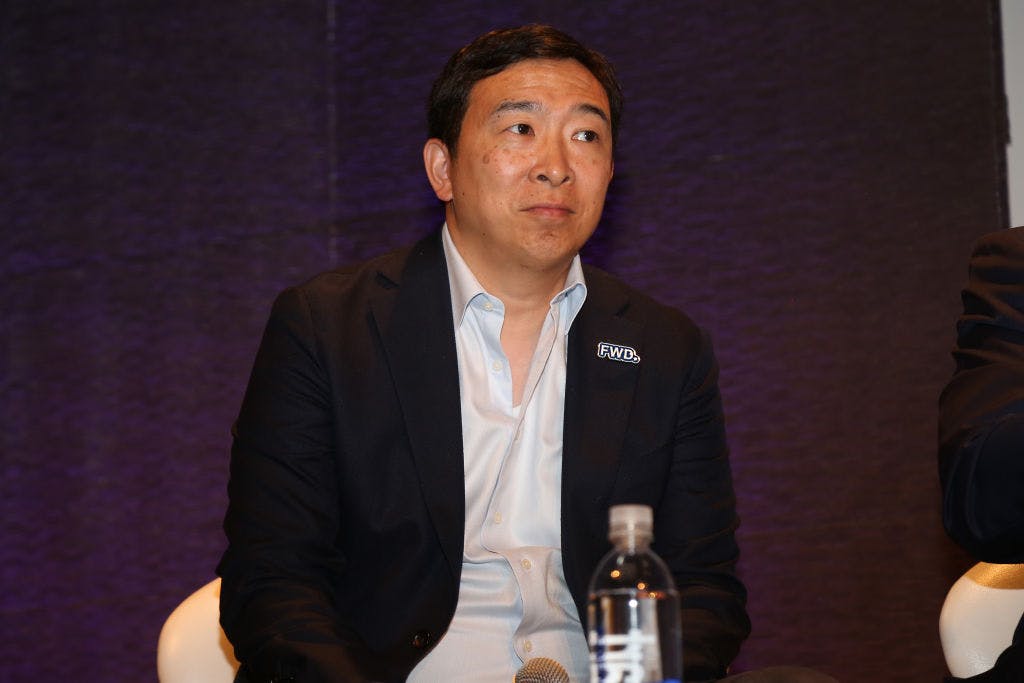Study shows that universal basic income may not be the greatest idea
A new study shared by a University of Toronto professor casts doubt on UBI.
In the 2020 election cycle, darkhorse Democrat candidate Andrew Yang popularized the idea of a monthly $1,000 “universal base income” to fight poverty and offset job displacement due to automation, and debates on the merits of UBI have re-emerged as countries grapple with the ramifications of artificial intelligence.
Earlier this week, University of Toronto professor Eva Vivalt shared the results of a three-year randomized controlled trial, conducted by herself and four other researchers, on the impact of providing low-income individuals with an unconditional $1,000 per month, and the results appear to link UBI to a reduction in labor-force productivity. Here’s the paper’s abstract:
We study the causal impacts of income on a rich array of employment outcomes, leveraging an experiment in which 1,000 low-income individuals were randomized into receiving $1,000 per month unconditionally for three years, with a control group of 2,000 participants receiving $50/month. We gather detailed survey data, administrative records, and data from a custom mobile phone app. The transfer caused total individual income to fall by about $1,500/year relative to the control group, excluding the transfers. The program resulted in a 2.0 percentage point decrease in labor market participation for participants and a 1.3-1.4 hour per week reduction in labor hours, with participants’ partners reducing their hours worked by a comparable amount. The transfer generated the largest increases in time spent on leisure, as well as smaller increases in time spent in other activities such as transportation and finances. Despite asking detailed questions about amenities, we find no impact on quality of employment, and our confidence intervals can rule out even small improvements. We observe no significant effects on investments in human capital, though younger participants may pursue more formal education. Overall, our results suggest a moderate labor supply effect that does not appear offset by other productive activities.
Eva also published a thread on X sharing some of the highlights of the study. One that stood out to me was that total household income fell more than 20 cents for every $1 received.
While this study doesn’t look great for UBI supporters, I don’t find the results to be surprising. At the most basic level, the incentive structure created by UBI encourages recipients to work less. If you suddenly receive a significant portion of your income for free, you simply don’t need to work as much to maintain your current standard of living, so why would you?
On a more meta level, the notion that technology will, one day, evolve to the point that humans can replace their role in the labor market while still reaping the rewards of said market has always felt off to me. Businesses are ever-changing, dynamic entities that solve needs and address desires in exchange for money. The idea that you could, one day, remove people from the labor market and pay them dividends from the money generated within a separate, technology-driven labor market ignores the fact that people are the market. Markets are created by people to address the needs of other people, and the idea that the labor market will one day consist of robots doing tasks for each other and sending cash payments to all of the humans is a bit like plugging an extension cord into itself and expecting it to produce electricity: it ignores where the value comes from.
